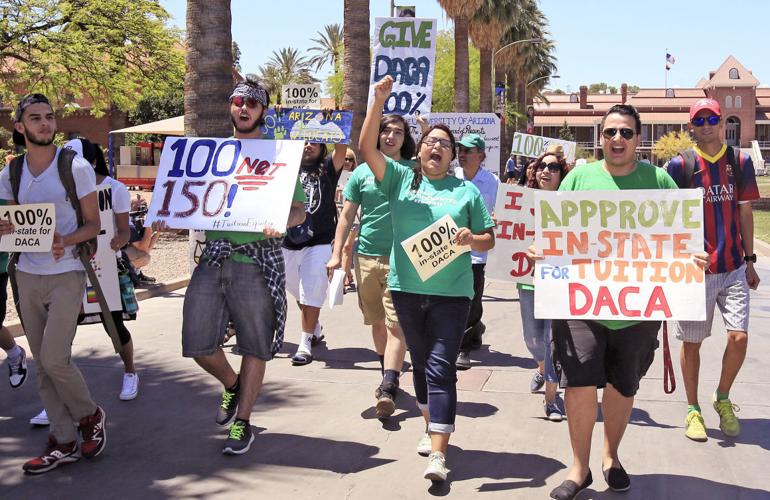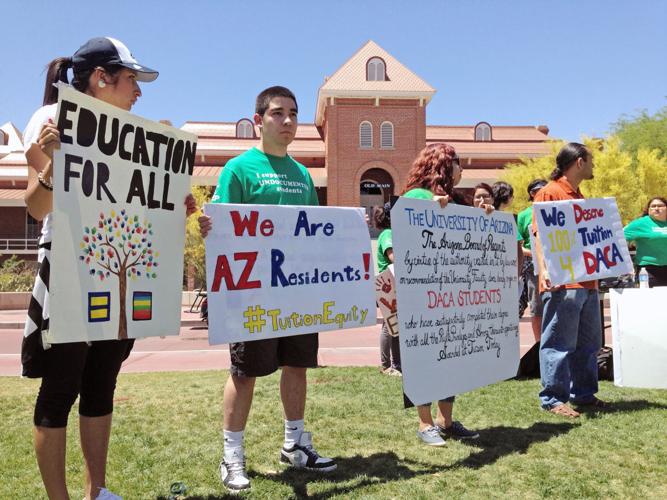With signs that read “Education for All,” and “We are AZ Residents” dozens of students and supporters marched around the west end of the UA Mall asking for in-state tuition.
Dario Andrade came to the United States from Mexico when he was 8, graduated from Pima Community College and got accepted to the University of Arizona’s Honor College but couldn’t enroll because he can’t afford it, he said Wednesday.
He now works as a tutor at Pima helping students transfer into a four-year college, he said. “The irony is that I can’t transfer myself.”
The University of Arizona is among the state’s universities that charge out-of-state tuition to DACA students, or those who have been approved for the federal government’s Deferred Action for Childhood Arrivals program.
Under the initiative, those who came to the United States as children and meet other criteria, including graduating from a U.S. high school, get a reprieve from deportation and can apply for a renewable work permit. But the program doesn’t give them legal status.
On Monday the Arizona Board of Regents will discuss a plan to allow the group of students known as “dreamers” pay a tuition rate equivalent of 150 percent of in-state tuition.
At the UA, the requested in-state tuition for new students next year would be $11,403. If the new policy is adopted, DACA students would pay $17,105 — compared with $32,630 a year for out-of-state residents.
Although the 150 percent is in the right direction, students and supporters said they are fighting for full in-state tuition.
Ana Rodriguez, a member of Scholarships A-Z, said she came to the United States when she was 8 years old and is about to graduate from Pima Community College but is “stuck at this time.”
Scholarships A-Z is a local organization that provides resources to help students access higher education regardless of immigration status.
“I’m being forced out of the state I’ve called home,” she told a small crowd that gathered outside Old Main. “We are trying to get the board of regents to understand 100 percent is what’s fair, what we deserve.”
Other students shared their personal stories and recited poetry before marching around campus.
Because students who lack legal status can’t get any financial aid or loans to pay for their school, Andrade said that the $17,000 a year is still unaffordable for many.
“I consider myself a resident of Arizona, I’ve been a resident of Arizona for 12 years,” he said. But like others, he’s looking for education opportunities outside the state.
The students have launched an online petition (bit.ly/ABOR-instate), a social-media campaign and are asking the community to contact members of the board of regents to grant them in-state tuition.





